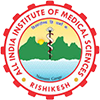About the Course
Nutrition is the complex series of events by which living organisms consume and assimilate foods and other nutrients to live, grow, and maintain homeostasis. Proper nutrition involves the consumption of key micronutrients in balanced tandem with essential macronutrients (carbohydrates, fats and proteins. Micronutrients, i.e., various vitamins and minerals are required in relatively minute quantities. Because humans are unable to synthesize these molecules, clinical disease results when disturbances occur in that equilibrium - most commonly from nutrient deficiencies. In this course, we shall study vitamins A, B and C. Vitamin A is a fat-soluble vitamin. It has a significant role in retinal photoreceptor function, epithelial proliferation, and keratinization. Vitamin A deficiency is the most common cause of preventable childhood blindness in the world. Appropriate dietary supplementation prevents the deficiency. Vitamin B is a complex of many vitamins e.g., thiamine, riboflavin, folate, niacin, cyanocobalamin, and biotin. Vitamin C is ascorbic and its deficiency results in scurvy. Both vitamins B and C are water-soluble vitamins.
-
Lesson 1 - Cutaneous Signs of Vitamin A Deficiency
Video
-
Assessment
Assessment
-
Discussion Forum
Discussion Forum
-
Feedback
Feedback
Course Rating
1 Review
-
100%
-
0%
-
0%
-
0%
-
0%
-
Sagar Sharma
27-11-2024
Very nicely explained sir.




